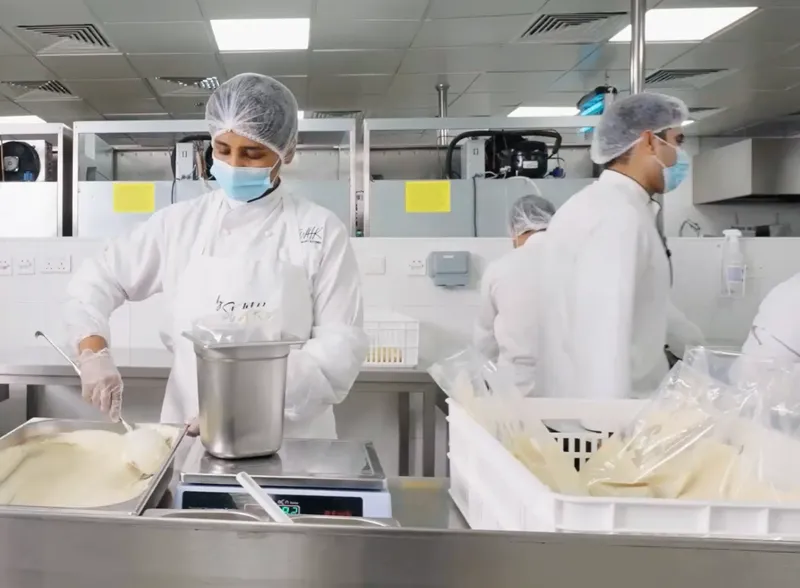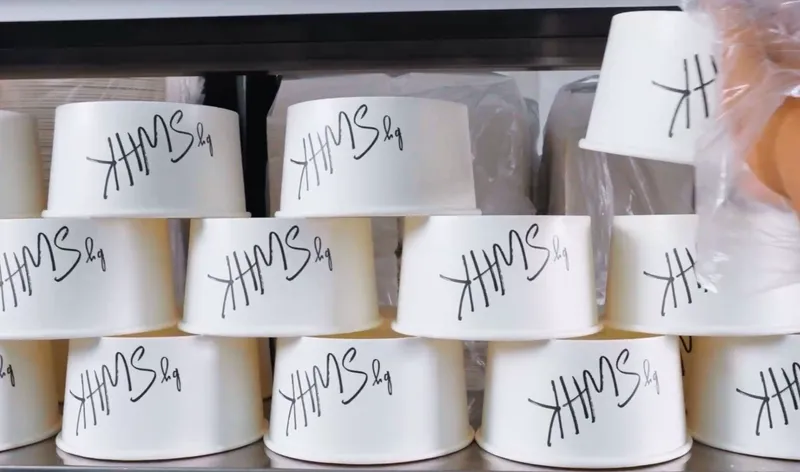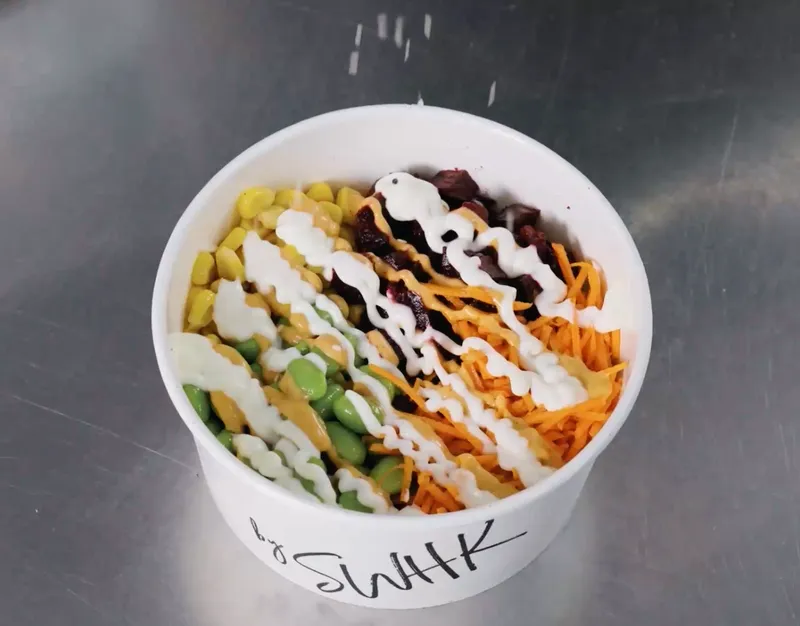How Peter Schatzberg’s Sweetheart Kitchen found the right fit in the Dubai market
In 2019, Peter Schatzberg started Sweetheart Kitchen in Dubai. In a conversation with YourStory Gulf, he discusses his journey in the F&B and food delivery space, starting up in a new market, and everything in between.
When Peter Schatzberg entered the Middle Eastern market in 2019 with a multi-brand cloud kitchen, it was his third entrepreneurial plunge.
, born out of his decade-long experience in the F&B and food delivery industry, is one of the big names in virtual kitchens in that part of the world. In July, the startup, which has raised a total of around $50 million until now, extended its services to grocery retail with the launch of Sweetheart Mart in UAE and Kuwait.
The journey to Sweetheart Kitchen
At 28, Peter started his career in the corporate world with GE Capital, a financial services firm. During this time he was also pursuing his MBA at the London School of Business. One of the professors here inspired him to look at entrepreneurship.
In 2006, now a business school graduate, Peter decided to leave his corporate job and start his first venture, FreeFoods NYC, in New York.
“It was an organic QSR concept. Delivery was just beginning to become a phenomenon in New York. We had started doing delivery, and finding product-market fit. We were doing 300 deliveries per day after we tweaked cuisines and processes to accommodate quick delivery turnaround times,” Peter recollects.
Seeing the volumes the business was generating and aware that customers at delivery weren’t necessarily retail customers, Peter decided to experiment with virtual brands in in 2012.
Initially, aggregators were resistant to having brands without brick-and-mortar establishments listed on their platforms.

TVM Capital Healthcare’s Afiyah Fund raises $10M from Saudi Venture Fund
But Peter says he was a little ahead of his time. “I launched my first virtual brand in 2013. And it was an instant hit. The run rate in the first week was $1 million. But it was an operational disaster because we weren’t anticipating those kinds of volumes. There was no technology. But I learnt and continued to build more brands and scale in the US.”
By then, a few venture capital-based delivery startups had a different model and didn't work well with aggregators.
“They tried to handle logistics, kitchen operations, and customer acquisition themselves – and failed. [This made it] very difficult for me on the East Coast to raise funding. Fortunately, by then, my current investor had heard about me. I met him in Europe and we agreed on seed capital. I relaunched the business in Germany in 2018- 19. However, my investor exited the German market soon after, but we agreed to look at the Middle East,” Peter says.
In the Middle East
The Middle East market is far more “favourable” than Europe or the US, offering low cost of labour, high basket size, and very dense population markets.
Peter moved to Dubai in 2019, and relaunched the business with more funding. He started building a talented team of veterans from the supply chain space, GE Oil and Gas etc. His idea was to build a team that understood what mature manufacturing businesses would look like, at scale; a team not so focused on the startup element or mindset.
Sweetheart Kitchen presently has 21 units across the Middle East, of which eight are located in Kuwait, and 13 in the UAE. Sweetheart Mart is retailing close to 1,000 confectionaries, drinks, and healthy snacks that can be delivered in 30 minutes.
It is now looking closely at the grocery market, which is huge. As per Arab News, the online grocery sales market in UAE is valued at $1.1 billion.

The problem of empty miles led this founder to launch UAE’s Uber for trucking
How does it work?
The startup utilises advanced cooking techniques, tech-backed manufacturing processes, and a LEAN six sigma data-driven approach for producing quality food.
Peter says Sweetheart Kitchen handles around 9,000 daily orders , with a basket size of $10-11. The average order value depends on the market, its geography, and the month it is operating in.
The Kuwait and the UAE units are supported by a central manufacturing facility where vendors deliver all raw materials.
Peter says, “The team turns raw materials into finished products, or we portion things. This creates a lot of procurement and production efficiencies, and economies of scale.”
“Our central manufacturing units distribute the food to satellites, which is where customer orders are received, and assembly and light cooking takes place,” he says.
The startup closely works with food aggregators to facilitate the entire process and attract consumers.
The partnership with food aggregators is essentially a way of eliminating customer acquisition costs. Instead, Sweetheart Kitchen pays a recurring commission.
“That affords us the opportunity to be in touch with customers across multiple aggregators in multiple markets without incurring a lot of upfront acquisition costs,” Peter says.
He credits the infrastructure and core services to the team’s ‘out of the box’ thinking.
“Everything is built internally. We have domain expertise and an extensive team across cultures that together decides what cuisines work for delivery in terms of transportability and profitability, and to identify what is perhaps not available but the consumer might embrace.”
He cites an example. “We do mac and cheese and hotdogs, which are not exactly Middle Eastern cuisine, but the consumer here enjoys them and likes the variety. We were not doing biryani and shawarma for over two years, and realised we were missing out on an opportunity. So, we did launch those brands, specific to the region. So, it's a collaborative process.”
At present, Sweetheart Kitchen competes with the likes of Kitopi, KLC Virtual Restaurants, Kaykroo, among others.
From pop culture to latest trends, the team believes in incorporating ideas to help the brand stand out, which is also Peter’s priority in building a strong brand image.
“When it comes to coming up with menu names, items, and brands, there is always an opportunity to take a modern approach.”
Meet Kelly Lundberg, a personal brand coach who set up Dubai’s first personal shopping brand
Middle East and the F&B market
The founder believes the nurturing business landscape of the region helped him scale.
According to Mordor Intelligence, the Middle-East and Africa functional beverage market is expected to record a CAGR of 8.53% during the forecast period (2022-2027). The numbers indicate it to be one of the most flourishing sectors.
Peter says, “I think the Middle East actually embraced food tech and cloud kitchens earlier than the US. The US was first to market and had that wave of failures that started on the West Coast, but that kind of slowed things down. Things took off in Asia and the Middle East. Europe was last to join the game. The Middle East had the headstart.”
On why the Middle East is an ideal place to start up, Peter highlights the ample availability of natural resources, human resources, monetary benefits, and a vision. He also speaks about the increasing appetite for investment in startups.
“The market is far more favourable than Europe or the US. You have more VCs, low cost of labour, a high basket size, and very dense population markets. If you are an entrepreneur, are fairly mobile, and do not care where you are building your business, there is a lot less competition here for raising capital than in the US.”
“The Middle East is moving very quickly. They have been doing so for decades but now Saudi is also gaining that mindset very aggressively. They do an incredible job of executing on their vision. There are new laws and regulations. The obstacles to each jurisdiction are unique in terms of governance but overall the region is very business-friendly,” he says.
He further highlights how the region’s strategies in tackling COVID helped businesses like his swiftly get back on their feet.
“Majority of the Middle Eastern countries were very aggressive about getting back to business. What I see from the government is we pick a direction with a long-term goal and vision, and we move towards that,” he says.
“In a world of uncertainty, this is a predictable region. When you're launching a business, you want to remove as much unpredictability as possible, because the process is very difficult in and of itself,” Peter says.

Learnings along the way
After having lived a corporate life , built businesses in two different geographies, and navigating a pandemic, Peter has come to understand and address the ambiguity of entrepreneurship.
“The larger your business gets, the less control you have. At present, we have substantial control over our business but say, if the price of chicken increases by 40%, there's only so much a person, team, or company can do to mitigate that.”
Peter says COVID led to the loss of 12 to 18 months in their plan to open new units and there was “nothing we could do about it”. “A lot of things are not in your control. So, I think what I have my eye on is the uncertainty and chaotic nature of the world at large right now.”
He reveals that the team is currently working on launching in Saudi Arabia by the beginning of 2023, and also closing another funding round.
Advice to entrepreneurs
When it comes to the question of starting up in a new market, Peter stresses on the security that comes with starting up in the home market instead.
“One lesson I learnt is that you must leverage a couple of things because becoming an entrepreneur is very difficult. Enough obstacles will come your way; you do not need to build a business outside of your home market just to add another challenge to what already is a difficult task,” he says, adding that he would not recommend building a business outside of one’s home geography, especially for first-time entrepreneurs.
“I certainly would not recommend an entrepreneur build a business in a domain where they do not have extensive corporate or startup expertise. You are setting yourself up for a world of pain by opening a company, which itself is a learning curve. You should not do that in a domain or a geography that you are not very familiar with,” Peter advises.
Edited by Teja Lele







